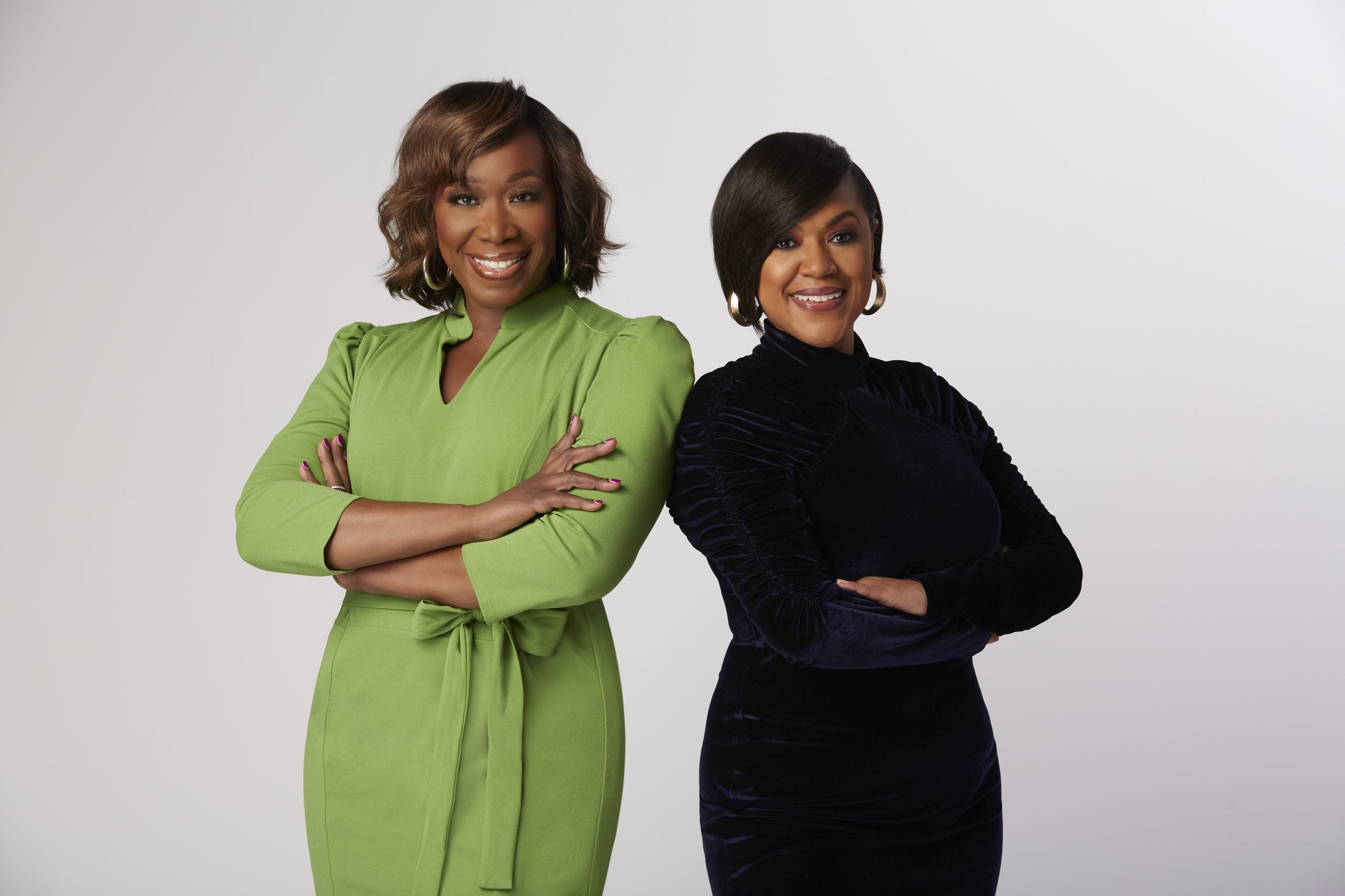
In the age of the Gaslight Gatekeep Girl Boss, there are many negative beliefs surrounding women in the workplace: Women are too catty. Women are always in competitions with one another. Those ideas have become definitive for women of color—but particularly for Black women.
MSNBC’s Joy Reid of The ReidOut and Tiffany Cross of The Cross Connection, plan to dispel those misconceptions, by not necessarily giving a seat at the table, but a chance for outsiders to eavesdrop on the conversation. On Sunday, June 19: MSNBC is premiering part one of a necessary new special, The Culture Is. Hosts and executive producers, Reid and Cross will moderate a conversation between Cross and Reid compiled a group of noteworthy women including Congresswoman Ayanna Pressley, creator of the #MeToo movement Tarana Burke, creator of the 1619 project Nikole Hannah-Jones, and Robin Thede, among others. Former ESPN sportscaster Maria Taylor was also on the guestlist. There she will speak out for the first time about leaving the network, after a leaked recording of a white colleague suggested race was a driving factor in selection for high-profile broadcast assignments.
Hosted at Minton’s Playhouse, inside of Harlem’s historic Cecil Hotel with food prepared by renowned Harlem chef Melba Wilson, the hour-long event will feature Reid’s exclusive interview with Vice President Kamala Harris in Mississippi.

The Culture Is was conceived out of a 2021 girls’ trip to Cabo—which included a star-studded sister-circle to die for—with The View’s Sunny Hostin, Black Lives Matter co-founder, Alicia Garza, political strategist Brittany Packnett Cunningham, organizer LaTosha Brown, and journalist Jemele Hill, to name a few. The trip was only meant to serve as a restart from the pandemic and celebrate the end of the Trump era. But photos capturing the getaway went viral.
“A lot of women were asking, ‘What conference is this? What organization? But it was just our girl group.” Cross told ESSENCE. “And we thought, how can we expand some of the conversations we had on the trip? And how can we extend this very warm, nurturing environment of sisterhood to some of our fellow sisters across the country?”
The two threw around ideas about a documentary, a special, or even a multi-platform initiative. Ultimately, Reid came up with the concept to just replicate the vibe the women had on the trip by hosting a dinner party. “Because dinner is where you tell stories,” Reid told ESSENCE.
So, how does an intimate luxury Black travel trip turn into a four-part roundtable series for Black, Indigenous, Latina and Asian women? Simple: “None of us are free, until all of us are free” as Fannie Lou Hamer said. Or, as Cross puts it, she took a Fred-Hampton-approach. “There is strength in solidarity,” Cross said. “We need to reach across to other communities, because collectively we are the global majority and the rising majority right here in America.”
By extending the series as a roundtable for different groups of women of color, the platform gives the guests a chance to speak candidly in a safe space. “It was important to me that every community of color, have the same conversation. Collectively as Americans, we should all have some intellectual curiosity about our fellow countrymen.”
In the thought-provoking dialogue Reid and Cross will facilitate an honest and vibrant conversation about what it means to be a Black woman in America. Only Black women know the comradery amongst one another. Oftentimes, Black women are pitted against one another, as the understanding is, there is only room for one Black woman at a time. For both women, it has only been the opposite. For Reid, in her experience Black women are always sharing the spotlight. She cites her friendship with journalist Tamron Hall as proof.
“Tamron Hall has kicked in doors for me,” Reid tells ESSENCE. “When we started out as these two Black women—dark-skinned Black with short hair—she could have been like, ‘Oh, she’s a duplicate. Let me walk away.’ No! She was like, ‘Come in, take this space, be in this space.’”
Reid pays that same support forward whenever she can. She said she is most proud of the other Black people she has brought along. “Once that door is open, I’m busting it down and dragging as many black folks behind me as I can. Because I think that is the way that we succeed. True group success is real success.”
Cross shared that her friendship with Reid is evidence of those actions. Cross called Reid her biggest advocate for joining MSNBC, stating she would not have her show if it were not Reid.
Cross also cited her friendship with journalist Angela Rye as a reference of Black women supporting Black women. Nothing is good enough for Cross in Rye’s eyes. “I tell her Angela, ‘They’re going to pay me $100 million’ she will say ‘What? They ought to be paying you $200 million.’”
It took much back and forth for the two executive producers before they landed on the title, The Culture Is. The notion of preserving and claiming “culture” has risen in recent years, especially as Black American culture, and its impact—whether credited or not—has assumed the role as mainstream American identity.
“I was saying ‘The culture is Black women’ because we are the mother. We create. We are the drive,” Cross said. “The magic that happens when Black women gather—the same is true for other communities.”
Culture as a form of capital and defining the American identity is nothing new. Reid attributes much of the fighting within the country to be about culture. “It is not about politics, it’s about the culture. And it’s about the fact that the future of the culture—the culture that is America—has been predominantly shaped by non-European people. The fact that numerically the future of the population is not white.”
Different ethnic groups are shifting the dynamic of what America is and what it looks like. In 2020, Latinos surpassed the Black community with the number of largest eligible voters at 32 million. The fastest growing demographic group of people in this country are Asian Americans. In the span of 20 years, the Asian population in the U.S. grew 81 percent, from roughly 10.5 million to a record 18.9 million, Pew Research reported. And, contrary to popular belief, the Indigenous community is growing. By 2050, the Indigenous population is expected to increase by more than 3 million.
“We both agreed that the series didn’t need to be about politics,” Reid said. “It needed to be about culture and the future of the culture is Black women; is Latinas; is Indigenous women; and is Asian women. It just is.”
The Culture Is: Latina, the second part in the series which will debut later this summer on the same network, hosted by Justina Machado, star of Netflix’s One Day at a Time. Katie Phang, host of MSNBC’s The Katie Phang Show, will host The Culture Is: AAPI Women. Former Miss Alaska USA and Miss USA Finalist and host of The Culture Stories series, Alyssa London will host The Culture Is: Indigenous Women.




